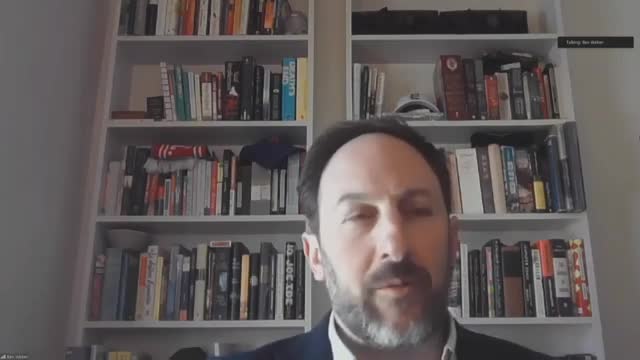City council committee reviews MassHire grant package, WIOA youth strategy; votes scheduled tomorrow
Get AI-powered insights, summaries, and transcripts
Subscribe
Summary
Boston City Councilors and city workforce officials on March 11 discussed a package of Department of Labor grants administered locally by the Office of Workforce Development and MassHire Boston, covering adult career-center services, WIOA youth programs and a $30,000 regional workforce planning grant.
Boston City Councilors and city workforce officials on March 11 discussed a package of federal Department of Labor grants administered locally by the Office of Workforce Development and the MassHire Boston workforce board, covering adult career-center services, WIOA youth programs and a $30,000 regional workforce planning grant.
The committee on Labor, Workforce, and Economic Development, chaired by District 6 City Councilor Benjamin Weber, heard from Office of Worker Empowerment staff, the MassHire Boston workforce board and career-center operators about how the funds are used at the city’s two MassHire career centers and by youth service providers. Councilor Weber said he intends to bring the dockets to a vote on March 12, 2025.
The grants under consideration include docket numbers 0397, 0398, 0401, 0403 and 0404 (a set the presenters described as adult and core career-center funding drawn from Wagner-Peyser, WIOA adult and related allocations); dockets 0449, 0450, 0451 and 0452 (WIOA youth funding and related grants); and docket 0455, a $30,000 grant for regional workforce planning. Councilor Weber said the awards originate with the U.S. Department of Labor, flow to the Massachusetts Department of Career Services and are passed through to the MassHire Boston workforce board for local administration.
“We do anticipate serving about 122 young people with these funds,” Katie Gall, director of grants for the Office of Worker Empowerment, said when describing the WIOA youth awards and the city’s strategy for intensive, long-term services for out-of-school young adults. Gall told the committee Boston’s chosen focus for locally awarded WIOA youth funding is ages 18 through 24 even though the federal statute covers ages 14 through 24.
Why it matters: the grants support the two MassHire career centers in Boston (operated by Jewish Vocational Services and ABCD) that provide career counseling, training vouchers, employer partnerships and placement services. Presenters said the centers together anticipate serving roughly 14,000 jobseekers in FY25 with an expected 12,470 placements; by comparison FY24 actuals were 15,076 jobseekers served and 13,675 placements. WIOA youth awards are intended to provide intensive case management, training and wraparound supports over 12–18 months for a smaller cohort, aiming to move participants into postsecondary training or credentialed careers.
Officials described how the local funding and program design work. Katie Gall and Office of Workforce Development staff explained that federal rules and Department of Labor regulations largely determine allowable uses of formula funds, that the MassHire Boston workforce board selects career-center operators via procurement, and that the Office of Workforce Development serves as fiscal agent for those agreements. Neil Sullivan, executive director of the MassHire Boston workforce board/Private Industry Council, and Angela McCabe, director of workforce development at the PIC, said training vouchers are distributed through the career centers to eligible training providers on the state’s eligible training provider list; by contrast WIOA youth funding is awarded as competitive grants to community-based youth providers.
Panelists identified common training pathways funded through these grants: healthcare (medical assistant, primary care technician, surgical tech, EMT), commercial driver’s licensing (CDL), information technology and office-skills training, and employer-partnered programs such as pharmacy technician and healthcare pipelines. Presenters highlighted one example: an EMT pathway described as an 18-month program that graduates workers entering positions with annual pay near $70,000 and benefits.
Panelists also discussed partnerships with community colleges and apprenticeships. Angela McCabe said the office has partnered with Benjamin Franklin Institute and Bunker Hill on apprenticeship-oriented cohorts but noted reporting requirements make some community college classroom placements administratively complex for formula-funded participants. The panel described other local training providers named as FY25 youth grantees, including ABCD, More Than Words, Excel Community Education, Notre Dame/Education Center (now part of Catholic Charities), and community-based organizations listed in the WIOA youth procurement.
Childcare and supports: Councilors asked about childcare barriers for training participants. Panelists said childcare is a persistent challenge. Katie Gall said the Office of Workforce Development received a $23,500,000 Department of Commerce award that includes $8,000,000 targeted to training childcare workers; the office also coordinates with Child Care Choices of Boston and city investments but said career-center funds alone typically cannot cover several months of childcare costs for trainees. Angela McCabe and staff described use of grant dollars for stipends, books, uniforms, travel and limited childcare and housing navigation supports on a case-by-case basis.
Eligibility, targets and timing: presenters reiterated that some dockets carry funds from FY24 and noted typical federal periods allow two fiscal years to spend formula awards. WIOA youth procurement is on a three-year cycle; applications for the next round were due in March with grant awards recommended in June and contracts beginning July 1, 2025. The youth awards are focused on out-of-school young adults with barriers to education and employment; presenters emphasized evidence-based, intensive services rather than short-term training-only models.
Next steps: the committee did not take a vote during the hearing. Councilor Weber said he will bring the dockets up for a committee vote on March 12, 2025. If approved, grant accept-and-expend actions would allow the Office of Workforce Development and MassHire Boston to receive and spend the Department of Labor funds as described in the presentations.
Ending: Councilors thanked presenters and panelists for the overview. The hearing record includes materials and slides presented by the Office of Workforce Development; council staff said written comments can be sent to the committee email and will be added to the record.
